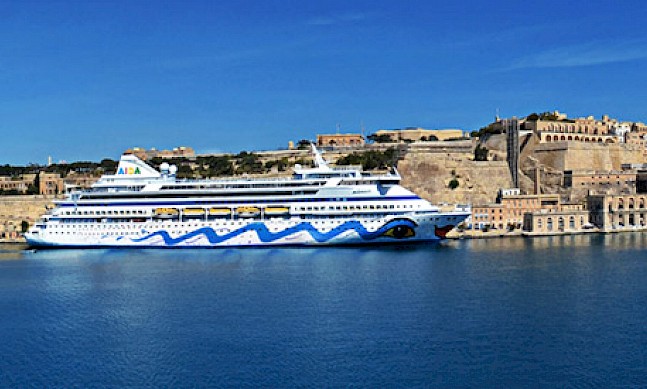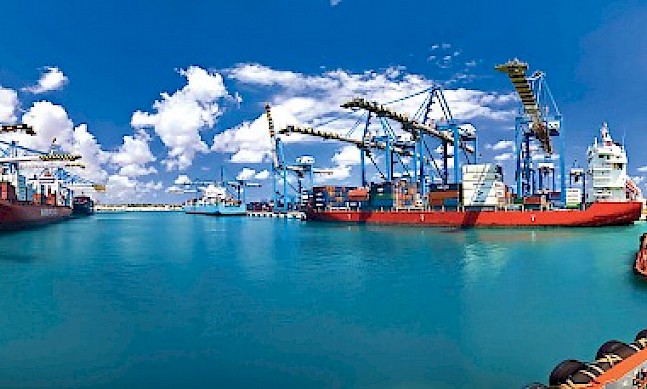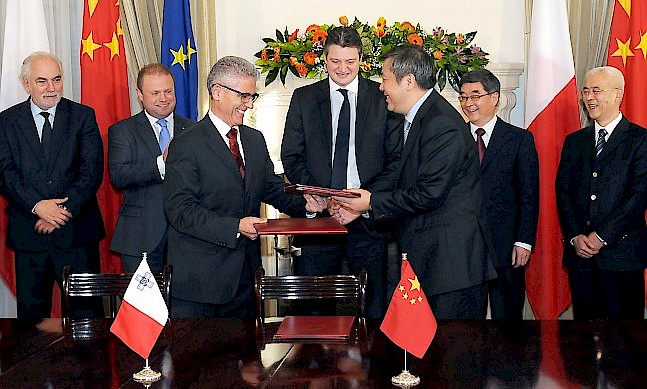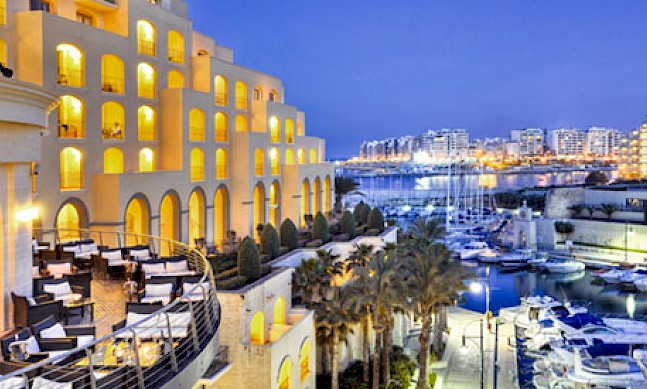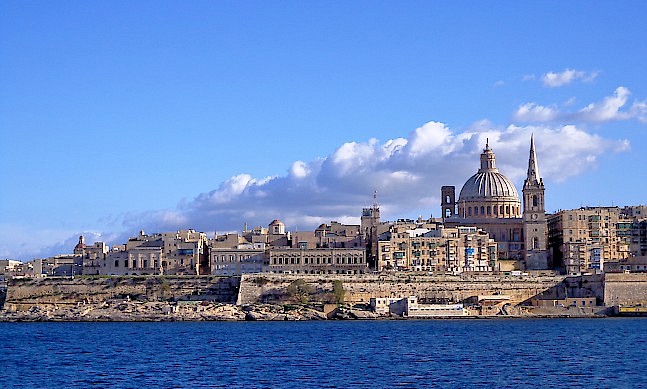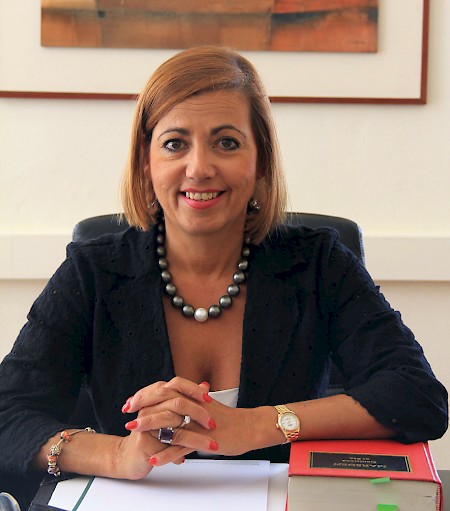
Established in 1891, Fenech & Fenech Advocates is one of the oldest law firms in Malta. Its managing partner, Dr Ann Fenech, is Malta’s leading maritime litigation lawyer, and was awarded the Best in Shipping and Maritime Award at the Euromoney Legal Media Group’s Europe Women in Business Law Awards 2012. She sat down with The Report Company to talk about the firm’s activities and share her insights on a broad range of topics, from the Maltese economy to the role of women in business and the outlook for the Maltese maritime sector.
The Report Company: Fenech & Fenech was established in 1891. What would you highlight as the key factors in its longevity?
Ann Fenech: The main ingredient in the success of Fenech & Fenech Advocates over the years has been that it recognises the changing domestic scenario. Maltese history is very colourful and Fenech & Fenech moved with the times. Whatever was being developed on a national level, we moved along with it. Not only did we move along with it but very often we moved ahead of it. We were actually instrumental in a number of circumstances in assisting with the development of the law. We were there and we developed departments in line with the growth of the industries as they developed locally. We were the first law firm in Malta and among the first in Europe to have a fully qualified lawyer who specialised in information technology law, so when information technology happened we were there. We are also very strong in the shipping sector and we are the only law firm on the island to have four separate and distinct departments dedicated to shipping – marine litigation, ship registration, ship finance, and yachting.
TRC: How would you appraise the maritime sector in Malta?
AF: The dynamics in the maritime sector have always been very good. Malta is truly a maritime nation. This is not just because we have the largest shipping flag in Europe. Malta is truly a maritime nation because thanks to our geographical position we are equidistant from Suez and Gibraltar and North Africa and Italy. We are on the rhumb line between Suez and Gibraltar which is why the Malta Freeport has been such a tremendous success. Malta was always an important transhipment centre because of our location. Malta has become a tremendously important location for bunkering. Ships don’t even have to come into our ports. We have a huge tradition in ship repair. Our shipyards date back to the 1800s when the British were in Malta and constructed our yards and our docks. We have the deepest natural harbour in the world. We have docks that can take vessels up to 300 metres. We have, with association between the government and the International Maritime Organisation, the International Maritime Law Institute which educates people from all over the world in maritime law. We have been a location of choice by people who want to be positioned in the centre of the Mediterranean for the purpose of offering assistance to other vessels. We are the largest register in Europe, but we’re not just a register. We are truly a maritime nation.
TRC: What can you tell us about the activities of your subsidiary, Fenlex?
AF: The international community is looking at Malta for a variety of services and this has led to the birth of a number of service providers. The provision of services is infinite: you might require legal services, corporate services, services related to redomiciliation, services with regard to the obtainment of work permits and we recognised over 20 years ago that there might be persons who might require sophisticated services which require the expertise of persons with an accounting background, or a human resources background for example, which don’t necessarily fall within the expertise of a law firm. Consequently we thought it would be more appropriate to create a subsidiary which would be made up of professionals with different backgrounds. We therefore created Fenlex Corporate Services which takes care of the requirements which these people might have which do not strictly speaking require the expertise of a lawyer.
“Malta is truly a maritime nation. This is not just because we have the largest shipping flag in Europe. Malta is truly a maritime nation because thanks to our geographical position we are equidistant from Suez and Gibraltar and North Africa and Italy.”Post This
TRC: How important would you say the Asian market is for Malta?
AF: The Asian market for us has always been an important market. Wealth in China, India and Singapore has grown and all these areas have attracted people who have developed niches. When it comes to shipping we have been working for Asian interests for past years. Naturally with the emergence of Asia worldwide, with the ultra-high-net-worth individuals who feel they want to be close to Europe, Malta is ideal. And this is how Malta has been selling itself over the last ten years: to persons outside Europe who wish to redomicile their businesses and who wish to have a pied-a-terre within Europe.
Culturally, we are so European in that we have been occupied by every power who has dominated European politics. We were European thousands of years before the concept of Europe ever existed. However we are also 120 miles north of North Africa and our language is Semitic in origin. This melee is why we are becoming increasingly attractive to people coming from the Middle East. They see Malta as a stepping stone to Europe. I can only see us going from strength to strength in this area.
TRC: How would you assess the Individual Investor Programme and its potential impact on Malta?
AF: Frankly, as far as the individual investment programme is concerned, I have my personal views on whether this was, strictly speaking, necessary. I am not particularly keen on the manner in which it came to pass. However, it seems as though the initial hurdles which came to light have been overcome. I am sincerely hoping that the agreement which the government has reached with the European Union will in fact find itself reproduced in our legislation.
TRC: What is your opinion on the change in the energy mix in Malta, and the new project by ElectroGas?
AF: As far as the mix is concerned of course that is a completely positive issue and I think there is agreement nationally that a country should most certainly not depend on one source of energy. Just prior to the last election, the previous administration also made it very clear that it really wanted to think in terms of a direct gas pipeline from Europe to Malta. There is also the electrical interconnector where we could as a country purchase electricity directly from Europe possibly at cheaper rates depending on the time of day. As far as the new project is concerned, and as a Maritime lawyer I expressed concern over the fact that the LNG FSU was going to be positioned in the middle of a very high traffic and congested, relatively restricted harbour prior to a full maritime impact assessment was carried out. I would have preferred to see a study between having an FSU inside harbour to having an FSRU well outside the harbour area.
“Malta was always an important transhipment centre because of our location. Malta has become a tremendously important location for bunkering. Ships don’t even have to come into our ports. We have a huge tradition in ship repair.”Post This
TRC: Women tend to be under-represented in the Maltese workforce. To what extent do inequalities exist today within the Maltese job market?
AF: I have been working for 27 years. I qualified in Malta and the week after I qualified I started my first job ever in a London law firm where I competed as a 24 year old foreign female. Since that day to this present day, 27 years later, I have never ever been in a situation where I have felt hard done by because I’m a woman. I worked in London, I spent a couple of years in America and I have been in Malta since 1992 and never have I been put in that position. That does not necessarily mean that everybody has had that experience. In fact I am fully aware of the fact that other ladies have not had that experience. However to be perfectly frank I feel a lot has to do with your own personality and how you approach these things.
If you work hard and study hard and deliver to the best of your ability then any person requiring a service is going to come to you because they believe you can deliver. In this firm, we employ around 90 people, of which over 60 are female. Not because we go out of our way to choose women. Far from it. The reality is that employing ladies comes with a few add-ons which you don’t have when you are employing men. Women add value. I’m going to say something today which I probably would not have admitted to 27 years ago. Ladies because of our genetic makeup, because of all the various roles that we choose or which are imposed on us, are able to multitask. So around the negotiating table all these things come out. Women add value at that level and that is why I think it is important to have women around the table. Our multitasking abilities assist in other sectors and spheres.
We need to have an intelligent conversation on whether women are being excluded from the workforce. At Fenech & Fenech, we allow our ladies to bring their children in to work with them if they wish. I don’t want to lose my best people when they start a family. Why should people choose between having a family and having a career?
TRC: What would you identify as the factors in Malta’s success and where do you see room for improvement?
AF: I think one of the reasons behind Malta’s growth and success is that by and large the service providers have worked very well with the various wheels and cogs in government.
“We have, with association between the government and the International Maritime Organisation, the International Maritime Law Institute which educates people from all over the world in maritime law.”Post This
You need a robust legislation, and we are very fortunate in that our legislators tend to legislate very well because government have always consulted with the private sector. Equally important is that within all these industries the government agencies are run by people who understand how important it is to be firm about the law, while also making sure that they eliminate as much bureaucracy as possible. They are understanding towards the requirements of the international client, they are accommodating, and they know that they cannot afford to be rash and brash.
TRC: You joined the firm in 1992. What have been your biggest achievement and what are your plans for the future?
AF: 1992 I joined Fenech & Fenech because it was the only law firm which was prepared to give me a free hand in the development of a marine litigation department. Having practised as a marine litigation lawyer in London and in America for six and a half years, I wanted to continue doing marine litigation. It’s what I knew. The competitors of Fenech & Fenech thought that that was the craziest idea that they ever heard and that the market was too small. Fenech & Fenech said, if you think you can do it, get on with it. I did that, and we have gone from strength to strength. Today we see at least 80 percent of every maritime related issue which either occurs in Malta or away from Malta involving a Maltese registered vessel. We have been exceptionally successful in that and we have done this with every other kind of specialisation.
I accepted to became managing partner in 2008 on the understanding that I would occupy that position for three years. When the three years were up my partners asked me to stay on and I agreed for another 2. Those 2 years were up last year. Again they asked me to stay on. I would not like this to be an indefinite affair because I believe that every person ought to contribute, give their best, but then move on. We now need to put a finite plan in place! I would like to think that a hallmark of my management has been to encourage individuals within the firm to continue to develop their area of expertise. I really believe that professional persons need ownership of a project of a subject matter . They need to become associated with an area of expertise on a personal level and they need to grow within that area. As they grow within that area they flourish and at the same time the firm will then grow with them. I believe it is a direct result of this style that we have continued to grow so successfully in other sectors and I sincerely hope that we will maintain this pace.


